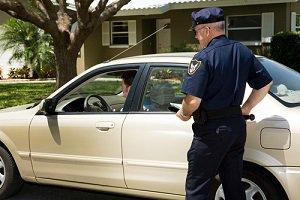1425 McHenry Road, Suite 204, Buffalo Grove, IL 60089
●Free Initial Consultation
Recent Blog Posts
Beyond Jail: Other Consequences of a Misdemeanor Conviction
 When some people hear that a crime is a misdemeanor, they automatically assume the crime is not a big deal. While it is true that the punishment for a misdemeanor is usually much less serious than for a felony, a single misdemeanor can still disrupt your entire life.
When some people hear that a crime is a misdemeanor, they automatically assume the crime is not a big deal. While it is true that the punishment for a misdemeanor is usually much less serious than for a felony, a single misdemeanor can still disrupt your entire life.
What is Happens With Probation
The maximum penalty for a misdemeanor is one year in jail. However, many people who are convicted of a misdemeanor will serve little, if any, jail time. Instead, most will be sentenced to a period of probation.
While probation is often preferable to jail time, it is not easy. Depending on the crime you are convicted of you will have a set of conditions that you must follow.
Common probation conditions include:
- Paying fines
- Not committing another crime
- Submitting to random drug tests
- Not going anywhere alcohol is served
Downtown condo prices rise above peak 2008 levels, report says - Chicago Tribune
http://www.chicagotribune.com/business/ct-chicago-condos-rebound-0210-biz-20160209-story.html
A Civil Order of Protection Can Become a Criminal Case
 Orders of protection are often considered a family law issue, as they seek to protect individuals from the dangers of domestic violence. However, they can often become much more complicated than that. If you have been the subject of any type of order of protection out against you, you may find yourself in the middle of a criminal investigation.
Orders of protection are often considered a family law issue, as they seek to protect individuals from the dangers of domestic violence. However, they can often become much more complicated than that. If you have been the subject of any type of order of protection out against you, you may find yourself in the middle of a criminal investigation.
Understanding the Process
Regardless of the circumstances leading to its issuance, once the court has issued an order of protection, a law enforcement officer will formally serve the order on you. From that point forward, you must obey all of the provisions in the order. If you are currently living in the same household with the alleged victim, you may be ordered to leave the residence and to find another place to live until the order is dismissed or expires.
The order itself is a matter of public record. It is possible that having a civil order of protection against you could impact your job or ability to do certain activities that require a background check. The issuance of the protective order may also prompt a criminal investigation into claims of domestic violence.
Illinois Identity Theft Crimes
 The fraudulent use of credit cards and bank accounts is as old as credit cards and bank accounts. However, the rise of internet connectivity has made identity theft crimes even more common. Illinois recognizes several different types of identity-related white collar crimes.
The fraudulent use of credit cards and bank accounts is as old as credit cards and bank accounts. However, the rise of internet connectivity has made identity theft crimes even more common. Illinois recognizes several different types of identity-related white collar crimes.
Types of Identity Theft Crimes
There are four major types of crimes related to stealing another person's identity in Illinois:
- Identity theft
- Aggravated identity theft
- Transmission of personal identifying information
- Facilitating identity theft
The basic crime of identity theft is using someone else’s credit cards, bank account, or personal documents to obtain money, credit, goods or services. If you use someone else’s information to commit another felony, it is also considered identity theft.
When an Illinois Traffic Stop is Unconstitutional
 The U.S. Constitution gives all of us a number of rights that we tend to take for granted. One of the most important rights is the right to be free from unreasonable searches and seizures. This means that law enforcement has to have a reason before they stop you in your car.
The U.S. Constitution gives all of us a number of rights that we tend to take for granted. One of the most important rights is the right to be free from unreasonable searches and seizures. This means that law enforcement has to have a reason before they stop you in your car.
Legal Requirements to Make a Traffic Stop
A law enforcement officer must have a reason for pulling you over. The law requires that the police have probable cause to believe that you have violated the law. Probable cause means the police have to have more of a reason than past experience or a gut feeling when pulling someone over.
The police can pull you over for a minor traffic violation. If, after speaking with you, they discover evidence of more serious criminal activity, they can investigate further.
When the police do not have a legitimate reason for making a traffic stop it is called a pretext stop.
Public Indecency Laws in Illinois
 The laws against public indecency cover a wide range of individual offenses, including sexual offenses as well as incidences of public exposure. While these types of crimes are very common, they still carry serious consequences for anyone charged, sometimes the effects of which can last for a very long time as a person may be added to the national or state registry of sexual offenders, affecting a person’s ability to find work, live in certain neighborhoods, or work in a job where children may be present.
The laws against public indecency cover a wide range of individual offenses, including sexual offenses as well as incidences of public exposure. While these types of crimes are very common, they still carry serious consequences for anyone charged, sometimes the effects of which can last for a very long time as a person may be added to the national or state registry of sexual offenders, affecting a person’s ability to find work, live in certain neighborhoods, or work in a job where children may be present.
In Illinois, public indecency is defined as (including but not limited to):
- A public act of sexual penetration or sexual conduct; or
- A lewd exposure (ie: flashing, public masturbation) done with the intent to arouse sexual desire in the victim.
The state legislature specifically calls out that in no situation will breast-feeding in public be considered an act of public indecency. A public place in this instance means anywhere that another person could witness or be present. It does not have to be a crowded public space: If a person exposes himself, for example, on a private street as only one other person is walking by, he or she could still be charged with public indecency. Another common type of citation for public indecency can include public urination—if, for instance, a person is out drinking and relieves himself on the street, he can be charged. This seemingly innocuous act could then stay on his record forever.
What You Need to Know About Probation
 Sometimes, instead of being sent to jail after a criminal conviction, you may be sentenced to probation. As part of the sentence, you are given certain conditions. If your probation officer determines that you violated your probation, you can be arrested and sent back to court.
Sometimes, instead of being sent to jail after a criminal conviction, you may be sentenced to probation. As part of the sentence, you are given certain conditions. If your probation officer determines that you violated your probation, you can be arrested and sent back to court.
Types of Violations
The conditions of probation vary for different crimes and the circumstances of your individual case and criminal history. Some typical examples of probation conditions include:
- Do not commit new crimes;
- Report to your probation officer on a regular schedule;
- Take and pass drug tests;
- Make payments of fines and restitution;
- Do not leave the state without prior approval;
- Do not have any contact with the victim of the crime of which you were convicted; and
- Get and hold a job.
DraftKings, Illinois agree to expedited schedule in fantasy sports lawsuit
DraftKings, Illinois agree to expedited schedule in fantasy sports lawsuit
Feds to help Waukegan police repair strained relations with community
Feds to help Waukegan police repair strained relations with community

















